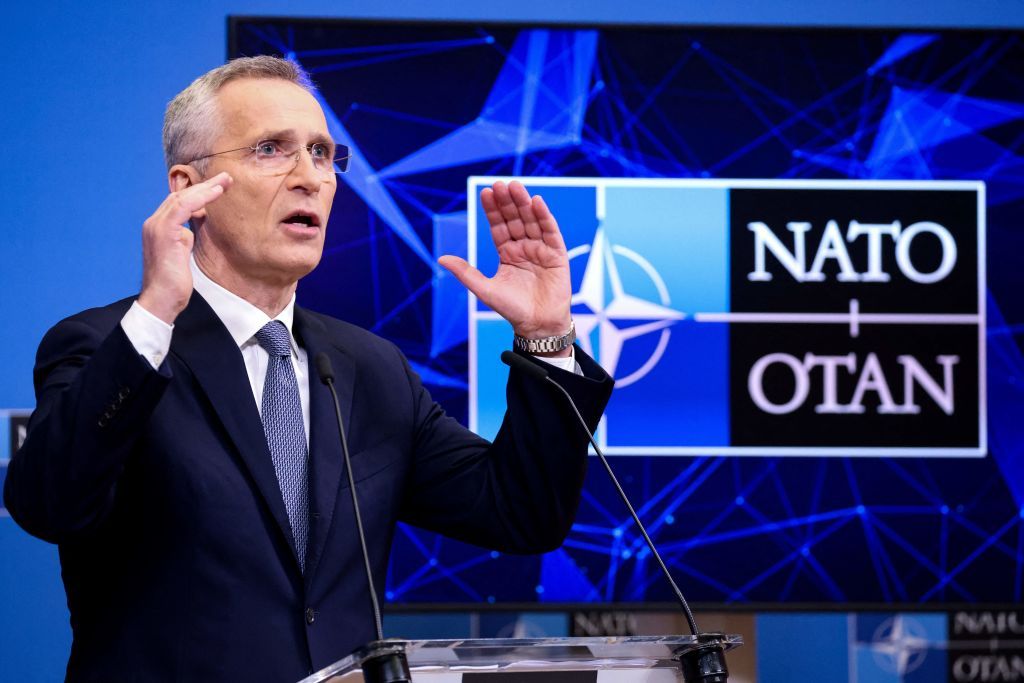The Foreign Ministry's spokesperson Oleg Nikolenko lashed out at a German Press Agency article, which cited unnamed diplomats arguing that talks about Ukraine's accession to NATO "distract from the much more important support" for Kyiv and risk provoking Russia to wage "even more aggressive warfare."
Nikolenko dismissed the arguments on May 2, saying that they "constitute a set of erroneous judgments that have long lost their relevance."
He also said that "we have already heard arguments about the need to refrain from steps that could allegedly 'provoke' Russia to new aggression," arguing that the only thing that "provokes" Russia is uncertainty.
The spokesperson added that Ukrainians now make the largest contribution to Euro-Atlantic security and that the current international support of Ukraine in combating Russia adds to the process of acquiring NATO membership.
"The future of Euro-Atlantic security is decided on the battlefield in Ukraine, and our state's entry to NATO will guarantee the strategic security of the entire Alliance," Nikolenko said. "Ukraine is not a problem, but advantage for NATO."
A NATO summit is to be held in Vilnius on July 11-12 this year, where Ukraine expects a stronger commitment toward membership from the alliance.
During a meeting with NATO Secretary-General Jens Stoltenberg in Kyiv on April 21, President Volodymyr Zelensky said that Ukraine needed "something more than the format of our relations which exist today" and that the country needed a clearer indication of when it was joining NATO.
At the meeting, the NATO chief reaffirmed his personal support for Ukraine's future NATO membership.
"I will speak clearly," Stoltenberg said at the briefing, "Ukraine's rightful place is in the Euro-Atlantic family, Ukraine's rightful place is in NATO."
Finland's NATO accession showed that fears that Ukraine joining the military alliance would "provoke" Russia were unwarranted, Foreign Minister Dmytro Kuleba wrote in an op-ed for Foreign Affairs published on April 25.
Finland, which also borders Russia, submitted its application in May 2022 to join NATO after years of military neutrality.
Rather than responding with military action when Finland became a member of NATO, Russia attempted to downplay the move.
Kuleba also reiterated a point that he made in mid-April about how NATO's Membership Action Plan (MAP) is no longer a necessary step for Ukraine's path to joining the military alliance and would only delay its membership.
This is why Ukraine is looking for a "concrete timetable for Ukraine’s accession to NATO," Kuleba wrote.











